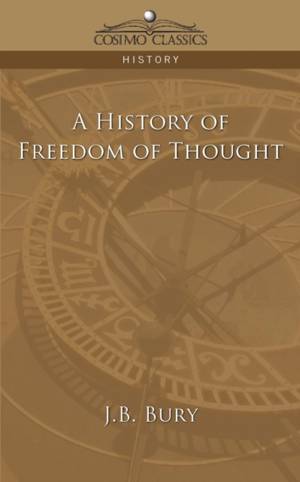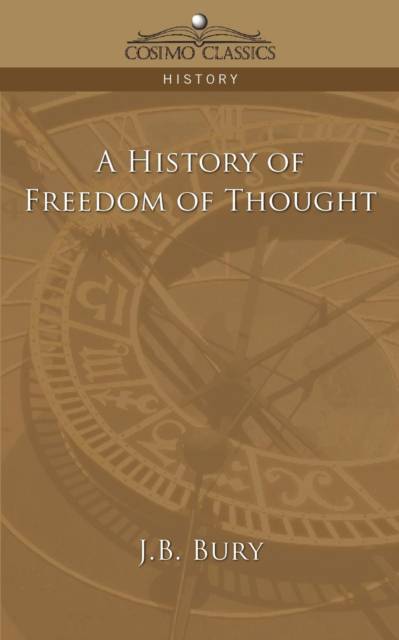
- Afhalen na 1 uur in een winkel met voorraad
- Gratis thuislevering in België vanaf € 30
- Ruim aanbod met 7 miljoen producten
- Afhalen na 1 uur in een winkel met voorraad
- Gratis thuislevering in België vanaf € 30
- Ruim aanbod met 7 miljoen producten
Zoeken
Omschrijving
During the two centuries in which they had been a forbidden sect the Christians had claimed toleration on the ground that religious belief is voluntary and not a thing which can be enforced. When their faith became the predominant creed and had the power of the State behind it, they abandoned this view. -from "Reason in Prison (The Middle Ages)" Humanity has always enjoyed freedom of thought-but the freedom to express those thoughts, however radical, however threatening to authority, is one that, as J. B. Bury's explains in this 1913 work, "has been acquired only in quite recent times, and the way to its attainment has lain through lakes of blood." In this entertaining and highly accessible history of speaking our minds without fear of retribution, Bury explores the concept of civic free thought from ancient Greece and Rome, where a strongly secular society bred open minds, through the constraints of the Mediaeval period and the re-blossoming of intellectualism in the Renaissance, to the scientific rationalism of the 19th century. This is a stirring defense of reason and erudition that remains all too necessary in a modern world where reason and erudition are still under fire. British historian JOHN BAGNELL BURY (1861-1927) was professor of modern history at Cambridge. His writings, known for a readability combined with a scholarly depth, include History of the Later Roman Empire (1889), History of Greece (1900), and Idea of Progress (1920).
Specificaties
Betrokkenen
- Auteur(s):
- Uitgeverij:
Inhoud
- Aantal bladzijden:
- 260
- Taal:
- Engels
Eigenschappen
- Productcode (EAN):
- 9781596055971
- Verschijningsdatum:
- 1/11/2005
- Uitvoering:
- Paperback
- Formaat:
- Trade paperback (VS)
- Afmetingen:
- 127 mm x 203 mm
- Gewicht:
- 285 g

Alleen bij Standaard Boekhandel
+ 40 punten op je klantenkaart van Standaard Boekhandel
Beoordelingen
We publiceren alleen reviews die voldoen aan de voorwaarden voor reviews. Bekijk onze voorwaarden voor reviews.







